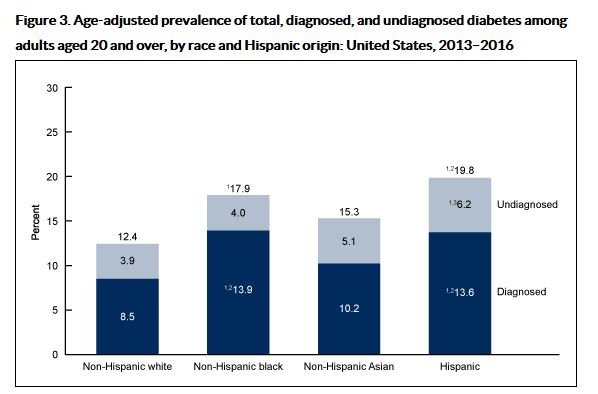 Sharp increases in diabetes are being reported by the U.S. Centers for Disease Control and Prevention (CDC).
Sharp increases in diabetes are being reported by the U.S. Centers for Disease Control and Prevention (CDC).
14% of adults living in the United States now have diabetes and only 10% are aware of it.
This translates into 1 in 7 Americans living with diabetes. The CDC believes a number of factors are responsible for the sudden increase, including an aging population and an epidemic of obesity. 95% of diabetes cases are Type 2 and are tied to lifestyle factors, where as 5% are Type 1 and typically are diagnosed early in life and do not correlate with lifestyle choices.
- Surprisingly, many more men are now living with diabetes. The study revealed that 16% of men and 12% of women have diabetes.
- Diabetes is also more common within certain groups. 20% of Hispanics, 18% Blacks and 15% Asians and 12% whites are living with type 2 Diabetes, according to data collected via the U.S. National Health and Nutrition Examination Survey.
People who are overweight and obese are also more likely to develop diabetes, the researchers found. Only 6 percent of underweight or normal-weight adults had the disease, while 12 percent of overweight adults and 21 percent of obese adults did.
Although treatment for diabetes is available, said lead researcher Mark Eberhardt, an epidemiologist at CDC’s National Center for Health Statistics (NCHS). The public health goal should be taking steps to prevent the disease. “Sometimes prevention is the best treatment,” he said.
As Diabetes Educators, we can take a leadership role in our communities by creating and supporting diabetes prevention programs and by providing amazing care to people living with diabetes.
 Learn more about starting a Diabetes Prevention Program on our Prevention Resource Page.
Learn more about starting a Diabetes Prevention Program on our Prevention Resource Page.
To learn more, visit the CDC Website National Center for Health Statistics Site
To learn more: 30 Million Americans Now Have Diabetes – Health Day
Source: Prevalence of total, diagnosed, and undiagnosed diabetes among adults: United States, 2013–2016.
NCHS Data Brief, no 319. Mendola ND, Chen T-C, Gu Q, Eberhardt MS, Saydah S. Hyattsville, MD:
National Center for Health Statistics. 2018.









